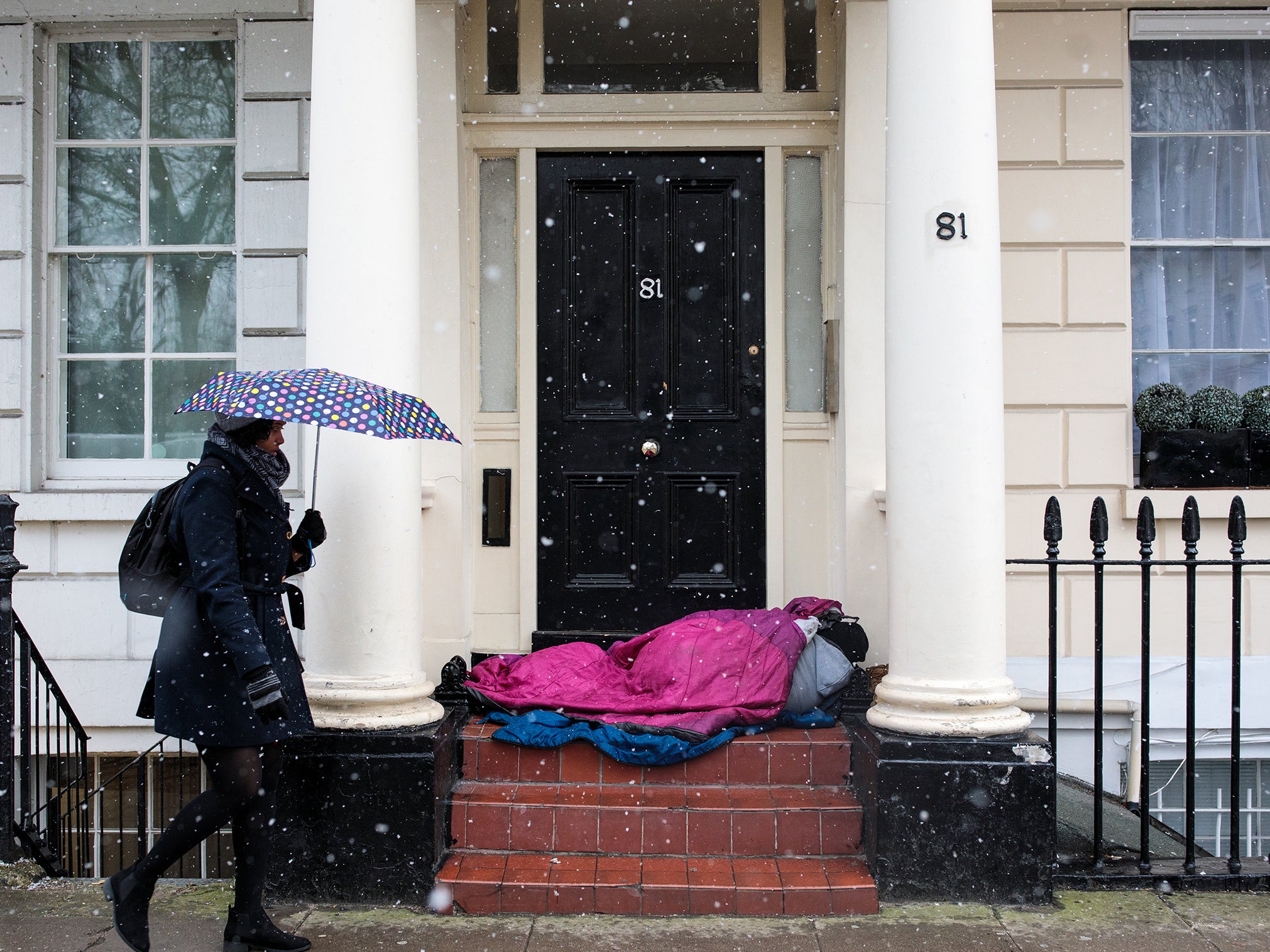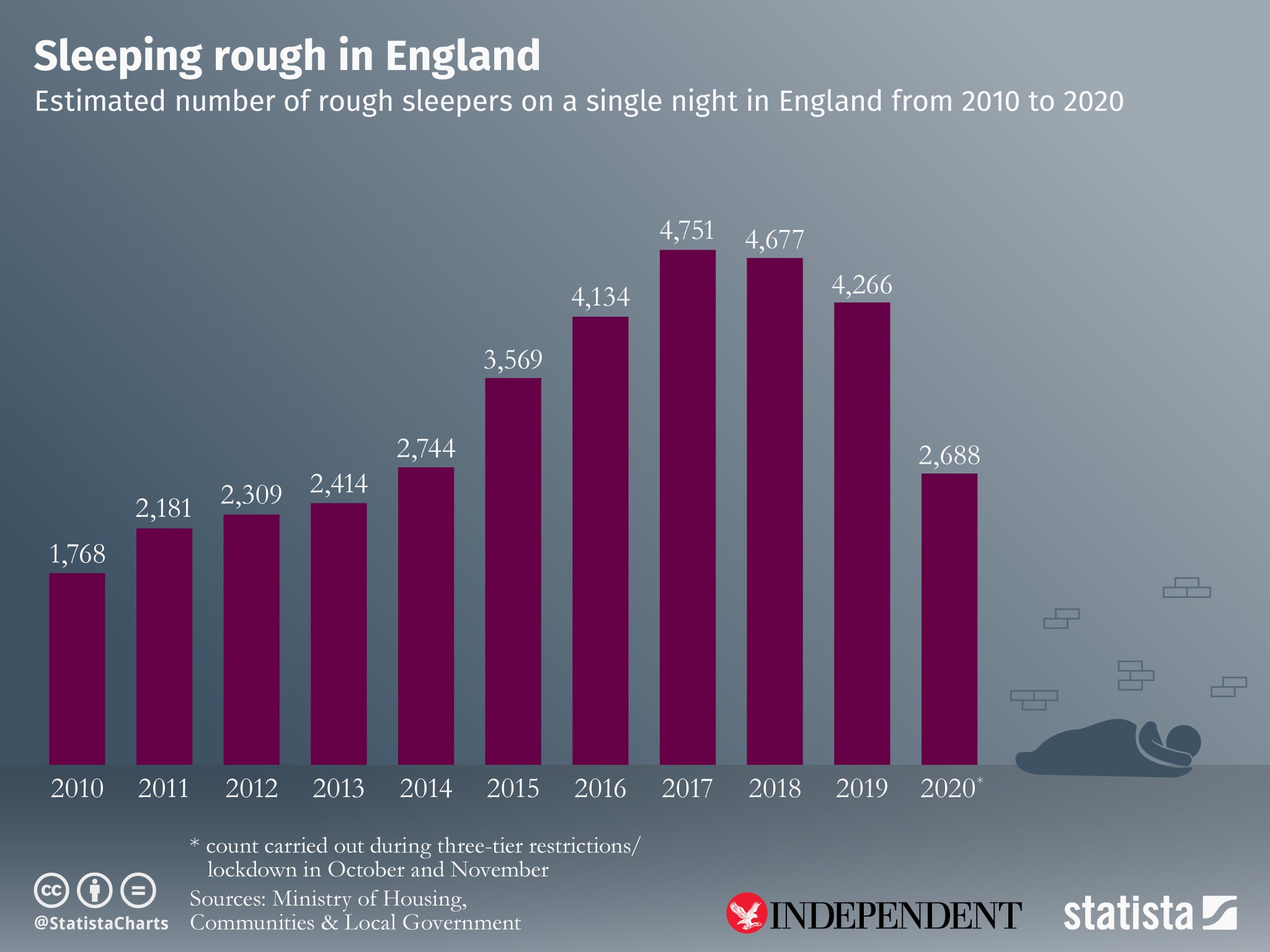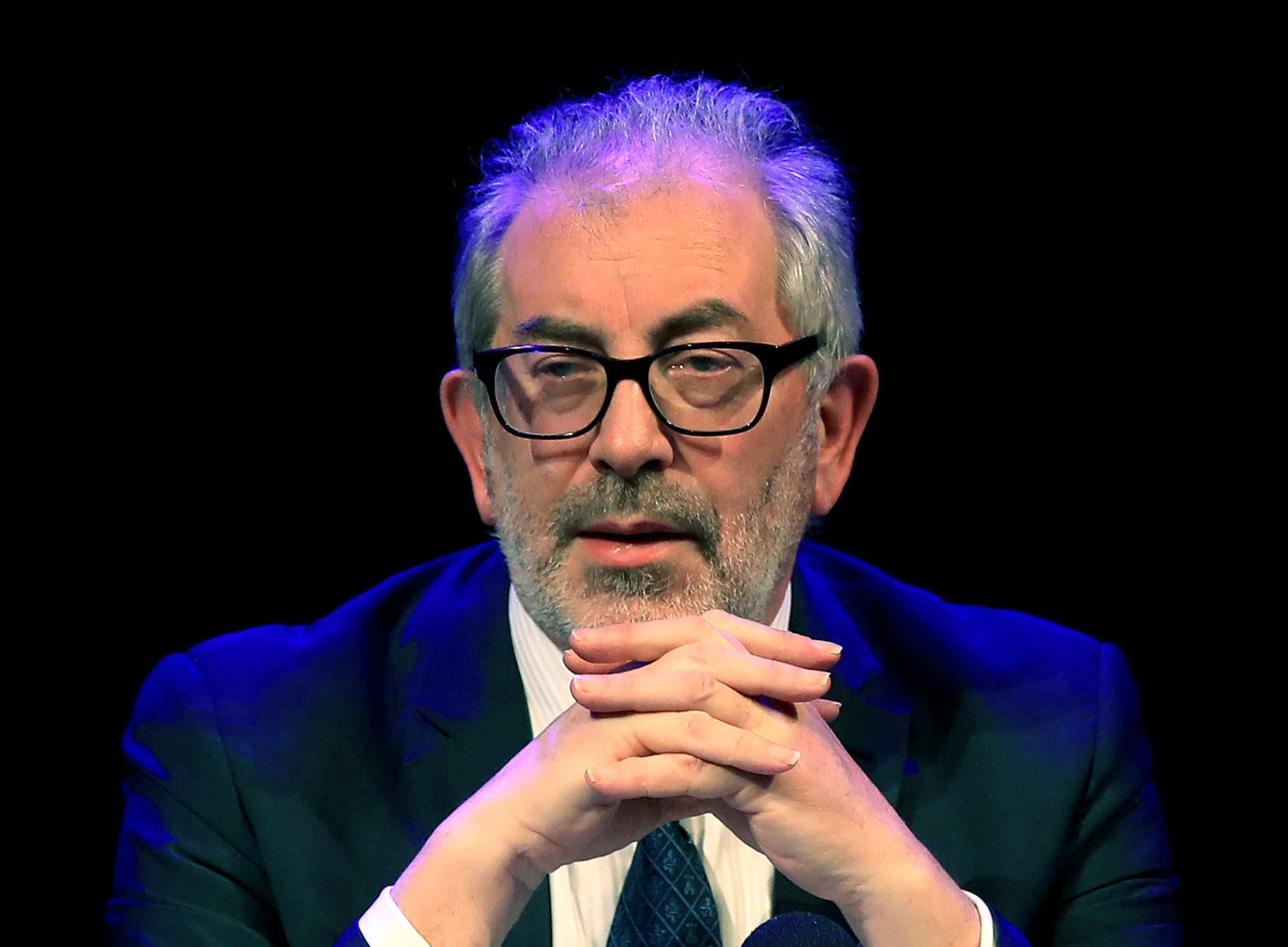Extra £82m a year needed to end rough sleeping by 2024, report says
The government is being urged to continue its Everyone In scheme

Ministers need to maintain pandemic-level funding for homelessness services in order to end rough sleeping by 2024, a report says.
The government is being urged to continue its Everyone In scheme into the long term, and maintain the extra funding it paid during the pandemic – an estimated £82 million a year.
Reducing the current funding would result in “an enormous lost opportunity” for the Conservative government to keep its manifesto pledge of eliminating rough sleeping over the next three years, the Kerslake Commission on Homelessness and Rough Sleeping warned.
The Everyone In scheme was set up during the pandemic with the intention of providing Covid-secure emergency accommodation to rough sleepers and people living in shelters in shared rooms. Some 37,430 people were provided with a place to stay and access to health and other support services by January 2021, according to government statistics.
The number of people housed is nearly nine times the Ministry of Housing, Communities and Local Government’s (MHCLG) pre-pandemic estimate of 4,266 rough sleepers on Britain’s streets.
If the scheme is cut back or scrapped, there could be a post-pandemic surge of people sleeping on the streets during the winter, warns the report by the commission’s independent panel, chaired by former civil service head Lord Bob Kerslake.

In March, cross-party MPs from the Housing Committee said the scheme “by definition has finished” as it was no longer helping everyone in need of accommodation, such as those with no recourse to public funds (NRPF).
But the government insisted the scheme was ongoing and it was “misleading” to suggest otherwise.
To prevent more homelessness and rough sleeping in the future, the commission is calling for the £20 Universal Credit boost, that was introduced as a temporary measure during the pandemic, to be maintained.
Street homelessness should be treated as a public health and housing priority, it added, and the government should establish a clear position that implementing its NRPF policy “must stop short of causing destitution” for people who cannot access benefits due to their immigration status.
The commission’s interim report has been published to inform ministers ahead of the autumn spending review.
Lord Kerslake said: “If we fail to learn the lessons of Everyone In, all the signs from the commission’s work are that the situation will get worse, not better, and homelessness and rough sleeping will increase.
“That would be an enormous lost opportunity for the government to deliver on its rough sleeping commitment, and a personal tragedy for those affected.
“We are at a pivotal moment. I fervently hope that the Government does the right thing and takes forward the recommendations in this interim report.”

The commission was set up to examine the lessons from the public health emergency response to rough sleeping during the pandemic. Its final report will be published in September. It received more than 100 submissions from local authorities, people who have been homeless or have slept rough, and health, housing and homelessness organisations.
St Mungo’s, which provides the secretariat for the commission’s advisory board, called the report a “truly comprehensive and considered piece of work” and backed the recommendations.
Chief executive Steve Douglas said: “We must not lose that momentum as we transition from lockdown. Right now we have a real opportunity to make our shared aim of ending rough sleeping a reality – we must take it.”
James Jamieson, chairman of the Local Government Association, which represents councils, said government funding for the scheme has been “crucial” but that it should be long-term must – and not a “one-off emergency response”.
The £20 increase per week to benefits should be “maintained for as long as they are needed,” he added.
A MHCLG spokeswoman said: “Our decisive action through the internationally recognised Everyone In scheme has protected thousands of rough sleepers throughout the pandemic.
“We’re building on that success with the backing of an unprecedented £750 million investment this year – giving rough sleeping and health services the funding they need to help get people off the streets and into settled accommodation.”
Infographic supplied by Statista.
Join our commenting forum
Join thought-provoking conversations, follow other Independent readers and see their replies
Comments
Bookmark popover
Removed from bookmarks